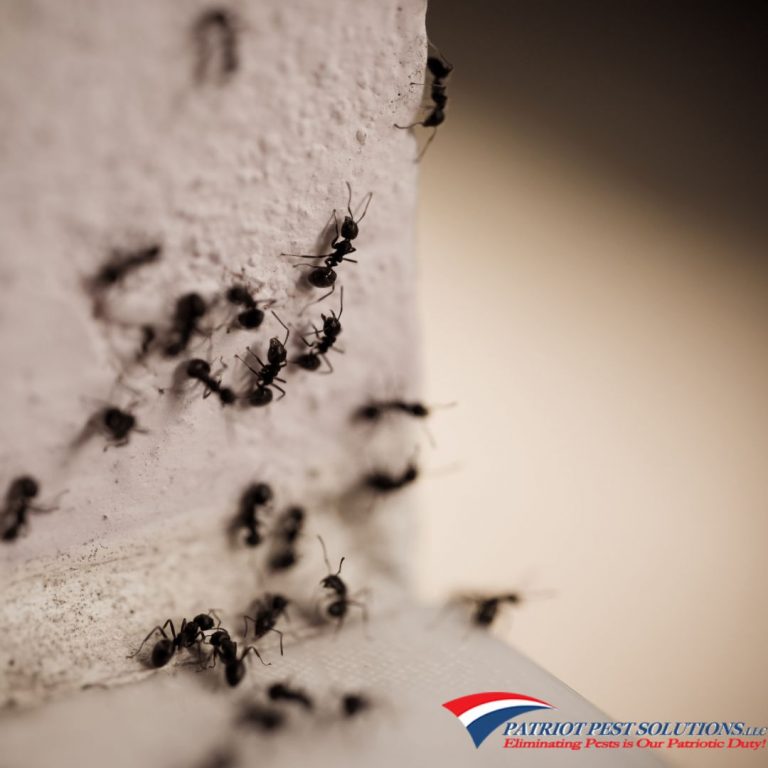Ants might be small, but they can become a huge nuisance once they invade your home. Whether you’re dealing with an occasional ant or a full-blown infestation, knowing how to keep ants at bay is essential. This blog post will guide you through the best methods to prevent and eliminate ants, ensuring your home remains ant-free.
Understanding Why Ants Invade
The first step in keeping ants at bay is understanding why they invade in the first place. Ants enter homes primarily in search of food, water, and shelter.
Ants are attracted to sweet and greasy foods, so even a tiny crumb can lead them indoors. They also need water to survive, which is why you often find them near sinks and bathrooms. Identifying these attraction points can help you develop a more effective strategy to keep them out.
Ants are social insects that live in colonies. Once they find a food source, they leave pheromone trails to guide other ants to it. This behavior can quickly turn a minor issue into a significant problem. Understanding this can help you break the cycle and stop the infestation in its tracks.
Common Types of Ants Found Indoors
Knowing the type of ant you’re dealing with can help tailor your approach. Various species have different behaviors and preferences, which can influence how you deal with them.
Carpenter ants are one of the most common indoor nuisances. These ants are particularly problematic because they tunnel through wood to create their nests, potentially causing structural damage to your home. Identifying their presence early can save you from costly repairs.
Sugar ants are smaller and less destructive than carpenter ants. They’re named for their preference for sweet foods. While they’re less damaging, they can still be a persistent problem if not dealt with promptly.
Odorous house ants are another common invader. They get their name from the unpleasant odor they emit when crushed. Like sugar ants, they’re attracted to sweet foods but can also be found near moisture sources like sinks and drains.
Preventive Measures to Keep Ants Out
The best way to deal with ants is to prevent them from entering your home in the first place. There are several proactive steps you can take to make your home less inviting to these pests.
Seal entry points. Ants can enter through even the smallest cracks and gaps. Inspect your home for potential entry points and seal them with caulk or weatherstripping. Pay attention to areas around windows, doors, and utility pipes.
Keep your home clean. Regular cleaning can go a long way in deterring ants. Wipe down countertops, sweep floors, and promptly clean up spills. Store food in airtight containers and keep pet food sealed when not in use.
Eliminate moisture. Fix any leaks and ensure your home is well-ventilated to reduce humidity. Ants are attracted to moisture, so addressing these issues can make your home less appealing.
Natural Remedies to Repel Ants
If you prefer a natural approach, several household items can help repel ants. These remedies are safe for pets and children and can be just as effective as chemical solutions.
Vinegar is a powerful ant deterrent. Mix equal parts water and vinegar in a spray bottle and apply it to areas where you see ants. The strong smell disrupts their scent trails and discourages them from returning.
Citrus peels are another natural repellent. Ants dislike the smell of citrus, so placing lemon or orange peels near entry points can deter them. You can also use citrus essential oils for the same effect.
Cinnamon and pepper can create barriers that ants won’t cross. Sprinkle these spices along windowsills, doorways, and other entry points. The strong smell is unpleasant for ants and will encourage them to find a different path.
Using Ant Baits Effectively
Ant baits can be highly effective in eliminating ants. These baits attract ants with a tempting food source laced with a slow-acting poison. Once the ants carry the bait back to the colony, it can help eradicate the entire population.
Choose the right bait. Different ant species are attracted to different types of food. Experiment with protein-based and sugar-based baits to see which works best for your particular infestation.
Place baits strategically. Position the baits near ant trails but away from areas where children and pets can access them. Ensure the baits are placed in a way that allows ants to carry the poison back to their colony.
Be patient. Ant baits take time to work, as the poison must be carried back to the colony and shared among the ants. Resist the urge to kill the ants you see; allow them to transport the bait back to their nest.
Chemical Solutions for Severe Infestations
While natural remedies and baits are often effective, severe infestations may require more potent solutions. Chemical treatments can quickly eliminate large populations of ants and provide long-lasting protection.
Insecticide sprays can be used to kill ants on contact. These sprays are available at most hardware stores and can be applied directly to ant trails and nests. However, they may not address the root of the problem—the colony itself.
Ant dust is another option for severe infestations. This powder can be applied to cracks and crevices where ants enter your home. The dust clings to the ants’ bodies and is carried back to the nest, helping to eradicate the colony.
Hire a professional if the infestation is too severe to handle on your own. Pest control experts have access to more powerful treatments and can provide a comprehensive solution to your ant problem.
Dealing with Carpenter Ants
Carpenter ants require special attention due to their potential for structural damage. These ants tunnel through wood to create their nests, which can weaken the integrity of your home.
Identify the signs of carpenter ants. Look for small piles of sawdust near wooden structures and listen for rustling noises within walls. These signs indicate the presence of carpenter ants.
Locate the nest. Carpenter ants often establish satellite nests outside the main colony. Inspect trees, stumps, and wooden structures near your home for signs of activity.
Use targeted treatments. Apply insecticide dust or foam directly into the nest to kill the ants and prevent further damage. Consider seeking professional help for large or hard-to-reach nests.
Maintaining a Long-Term Ant-Free Home
Keeping ants at bay requires ongoing effort and vigilance. By maintaining good habits, you can reduce the likelihood of future infestations.
Regularly inspect your home for potential entry points and seal any cracks or gaps. This proactive approach can prevent ants from finding a way inside.
Continue to practice good hygiene by keeping your home clean and free of food debris. Regularly wipe down surfaces, sweep floors, and store food in airtight containers.
Monitor for signs of ant activity. Stay alert for trails, nests, or other indicators of ants. Early detection allows you to address the problem before it becomes a full-blown infestation.
Creating a Barrier Around Your Home
Creating a barrier around your home can help keep ants out. Physical and chemical barriers can deter ants from entering your living space.
Apply a perimeter spray around the exterior of your home. These sprays create a protective barrier that ants won’t cross. Reapply as needed, especially after rain.
Use diatomaceous earth to create a physical barrier. This natural powder is made from fossilized algae and is safe for humans and pets. Sprinkle it around the foundation of your home to deter ants.
Plant ant-repelling herbs around your home. Mint, lavender, and basil are known to repel ants. These plants can create a natural barrier while adding beauty to your garden.
Understanding Ant Behavior to Outsmart Them
Understanding ant behavior can help you develop more effective strategies for keeping them at bay. By knowing what attracts ants and how they communicate, you can stay one step ahead.
Ants follow pheromone trails to find food. Disrupt these trails by regularly cleaning surfaces and using ant-repellent sprays. This will confuse the ants and make it harder for them to find their way.
Ants are opportunistic feeders. They will take advantage of any food source they find. Keep your home clean and store food properly to reduce the chances of attracting ants.
Ant colonies can relocate if their nest is disturbed. If you notice a sudden decrease in ant activity, they may have moved to a new location. Continue monitoring and treating potential entry points to prevent re-infestation.
The Role of Professional Pest Control
Sometimes, despite your best efforts, professional pest control services may be necessary. Experts can provide targeted treatments and ongoing support to keep your home ant-free.
Pest control professionals have access to more potent treatments and specialized equipment. They can address severe infestations that are difficult to manage on your own.
Regular pest control visits can provide ongoing protection. Many companies offer maintenance plans that include regular inspections and treatments to keep ants and other pests at bay.
Professional advice can help you develop a comprehensive plan. Pest control experts can assess your home’s unique needs and recommend the most effective strategies for keeping ants out.
Keeping ants at bay requires a combination of preventive measures, natural remedies, and, when necessary, chemical treatments. By understanding ant behavior and implementing these strategies, you can maintain a long-term ant-free home.
Remember, vigilance is key. Regularly inspect your home, practice good hygiene, and stay proactive in addressing potential entry points. If needed, don’t hesitate to seek professional help to ensure your home remains ant-free.
Thank you for reading! If you need further assistance, feel free to reach out to our team of experts for personalized advice and support.


